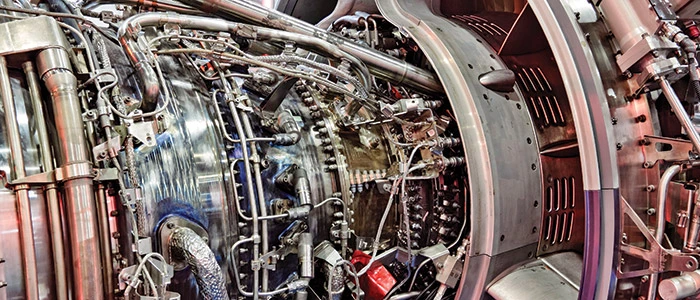
Aero-mechanical Engineering
Overview
Aero-Mechanical Engineering course implies knowledge and skills in designing, implementing and operating devices, machines, engines, and energy systems. It mainly focuses on aerospace systems and aircraft.
It is also relevant in various fields like wind energy, automotive systems, and space exploration. In this course, you’ll learn how to design control systems, aircraft engines, landing gear, and more.
Objectives
- Gain knowledge of the principles of aerodynamics, mechanics, and thermodynamics
- Learn design and analysis skills in aircraft and spacecraft
- Hands-on experience
- Develop critical thinking and problem-solving skills
- Promote research skills and innovative thinking
- Gain expertise in teamwork and communication skills
Prerequisites
- Proficiency in mathematics, physics, and chemistry
- Familiarity with computer programming
- Basic knowledge of engineering fundamentals
- Basic laboratory skills
Curriculum Outline
- Engineering Mechanics
- Electrical Circuits
- Heat & Flow
- Mechanical Engineering Design
- Experimental & Laboratory Skills
- Engineering Analysis & Numerical Methods
- Mathematics
- Flight & Spaceflight
- Professional Studies
- Electrical Machines & Control
- Aero Design
- Mathematical Modelling & Analysis
- Materials Engineering & Design
- Structural Mechanics
- Dynamics & Control
- Strategic Analysis of Engineering Business Case Studies
- Engineering Ethics
- Case Studies in Engineering
- Computer-Aided Engineering Design
- Engineering Materials Selection
- Individual Project - Aerospace
- Advanced Mechanics & Dynamics
- Aerospace Propulsion
Teaching Method
- Lectures
- Laboratory Work
- Computer Simulations
- Group Projects
- Case Studies
- Workshops and Seminars
- Field Trips
- Guest Lectures
Modules
- Fundamentals of Aerospace Engineering
- Fluid Mechanics
- Thermodynamics
- Aerodynamics
- Solid Mechanics
- Materials Science
- Control Systems
- Propulsion Systems
- Aircraft Design
- Computational Fluid Dynamics (CFD)
- Finite Element Analysis (FEA)
- Mechatronics and Robotics
- Systems Engineering
Assessment Methods
- Written exams
- Coursework assignments
- Presentations
- Individual/Group projects
Course Duration
The course duration may vary by institution and location. In the UK, full-time study can take about 4 to 5 years, and part-time can take about 5 to 6 years.
Facilities
- Aerodynamics Labs
- Propulsion Labs
- Materials Testing Labs
- Computer Labs
- Design Studios
- Research Facilities
- Instrumentation and Measurement Tools
- Prototyping Facilities
- Library and Learning Resources
Career Pathways
- Aerospace Engineer
- Mechanical Engineer
- Propulsion Engineer
- Systems Engineer
- Structural Engineer
- Test Enginee
Fees and Fundings
The fees depend on the institution and location. However, in the UK, the tuition fees for international students can lie between £15,000 and £25,000 per year for undergraduate programmes.
Entry Requirements
- A High School Diploma or Equivalent
- SAT
- English Proficiency
- Personal Statement or Essay
- Letters of Recommendation
Field Work and Internships
- Hands-On Laboratory Work
- Design Projects
- Site Visits
- Research Opportunities
- Industry Internships
- Government Internships
- Co-Op Programmes
Certifications
- Certified Aerospace Technician
- Engineer in Training
- Professional Engineer (PE) Licence
- Lean Six Sigma Certification
- Project Management Professional (PMP)
- NASA's Systems Engineering Certification
- CFD Software Certifications
- Robotics and Automation Certifications
- Additive Manufacturing (3D Printing) Certifications
Intakes
In the UK, the primary intake happens in September/October, and the secondary intake happens in January/February.
Student Testimony
I always had a keen interest in Physics and Maths in school so as we approached the final year of secondary school and I was thinking about my prospects and attending university, I started doing research into which universities I could potentially apply to. [Kaloyan Domuschiev from The University of Strathclyde]
Frequently asked questions
In Aero-Mechanical Engineering, you’ll learn about aerodynamics, flight and spaceflight mechanics, aeropropulsion systems, gas dynamics, and more.

